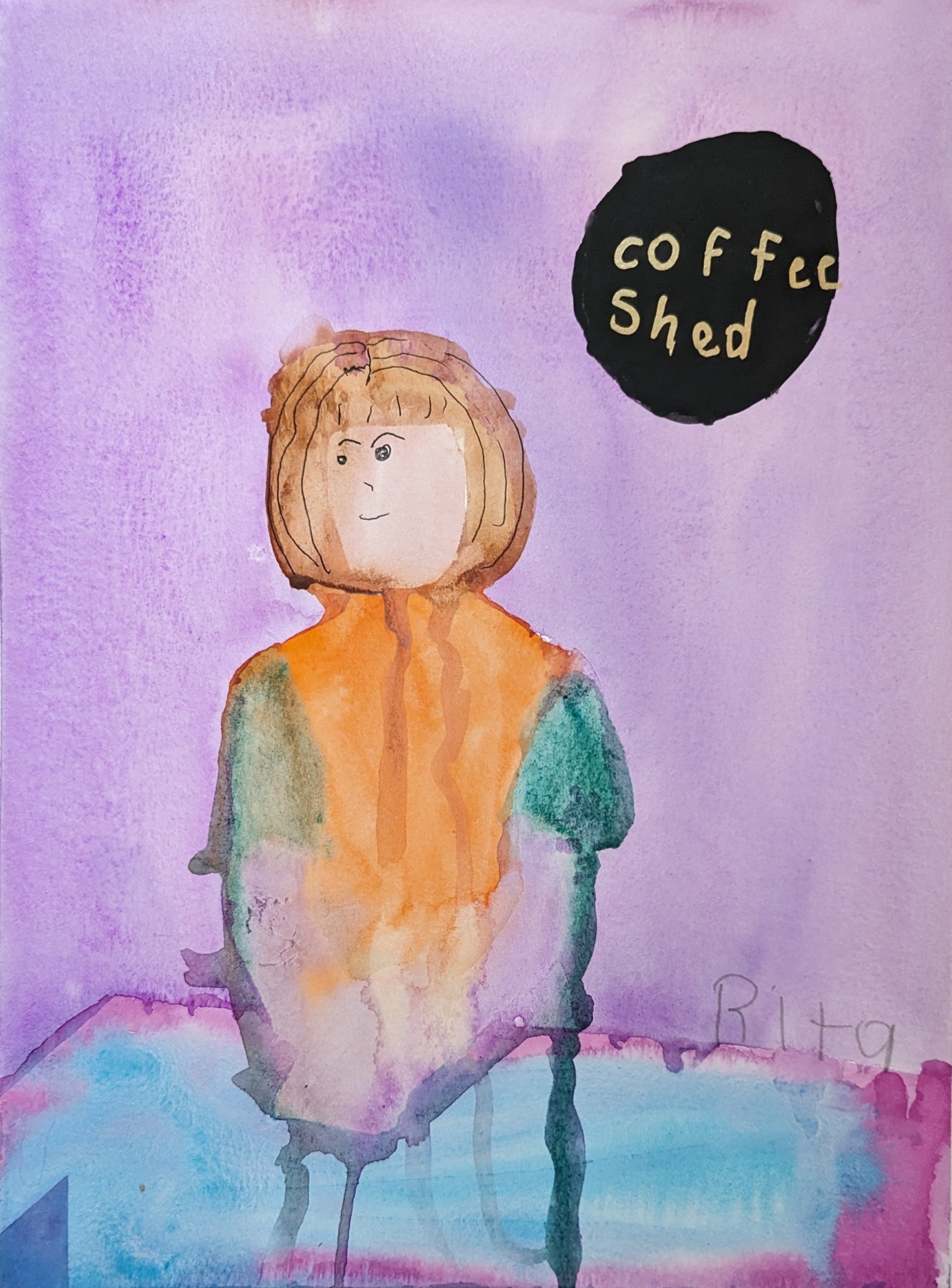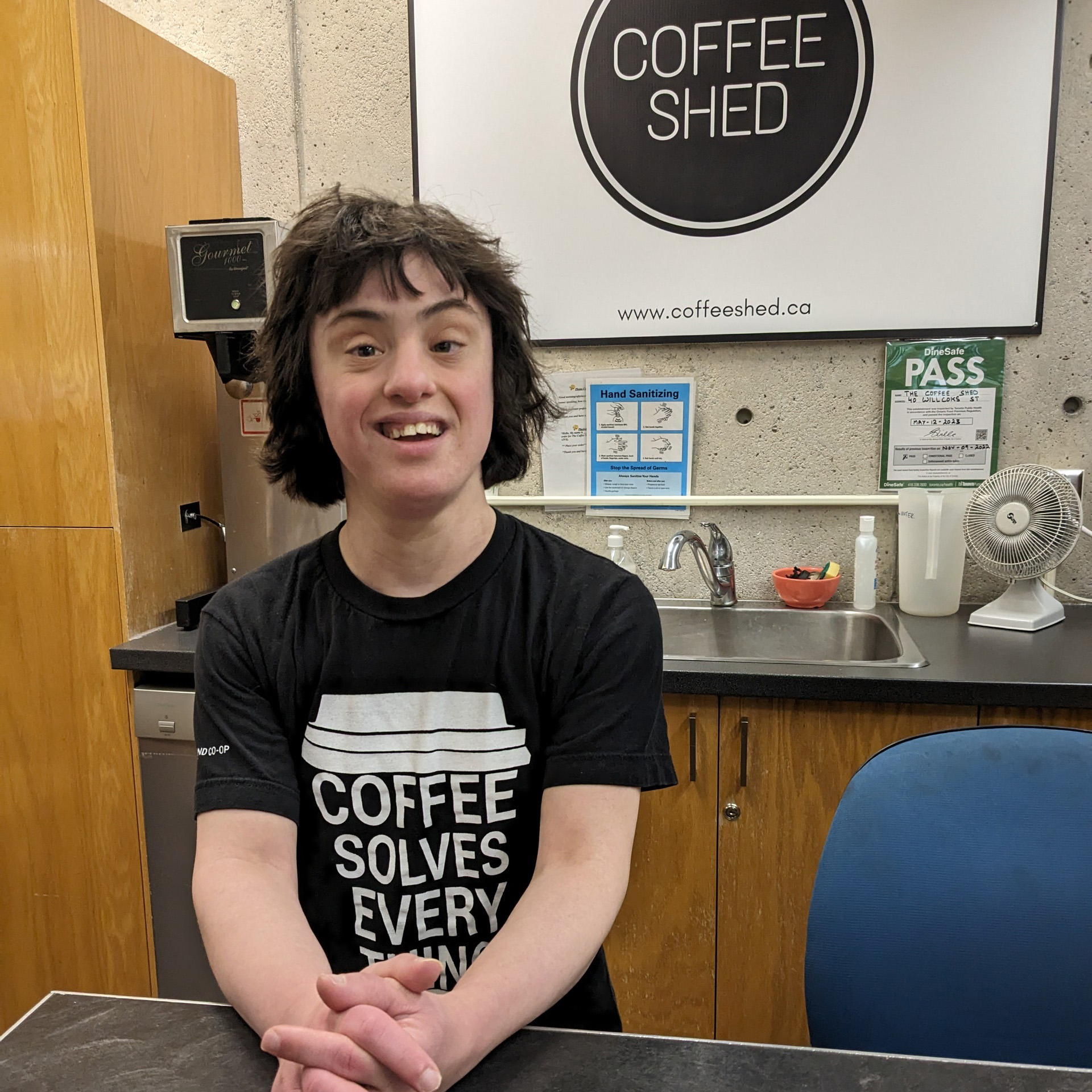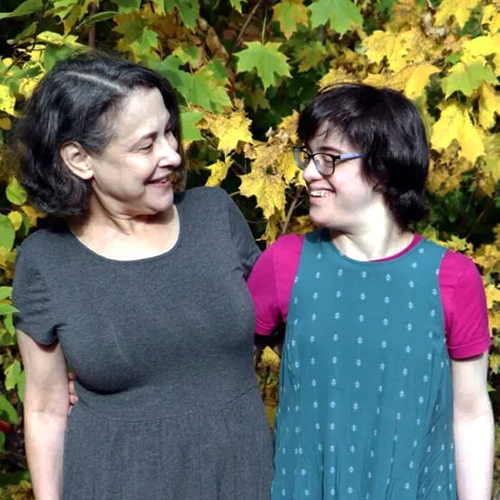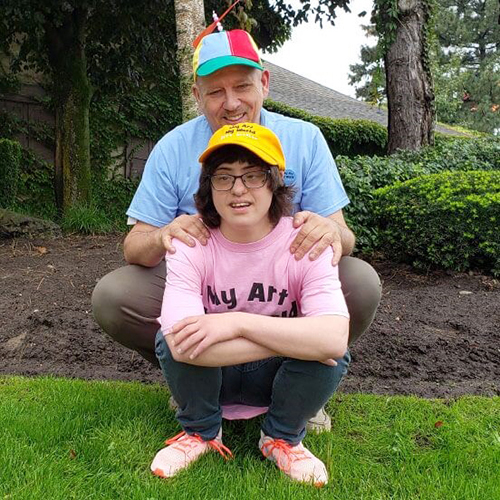The bus ride to work on a sunny day. The loud noises and bustling activity of a big city. A cheeky note to pesky telemarketers. Splashes of colour and dancing movement that capture the delightful, curious and yes, even the annoying moments of everyday life.
This is the world through Rita Winkler’s eyes. Rita is an artist and a person with Down syndrome who works at the Coffee Shed, a social enterprise café in New College’s Wilson Hall at U of T that is run by people with developmental disabilities.

Her children’s book My Art, My World shows how she experiences the world around her, reflected in her vibrant watercolour paintings.
“Rita paints how she sees life. Not everyone sees life in the same way — it’s an important lesson for kids to understand,” says Mark Winkler, Rita’s uncle.
My Art, My World came about when Rita was first introduced to the world of watercolours during the pandemic, through virtual painting classes organized by L’Arche London, a non-profit organization that facilitates community programs for people with developmental disabilities.
Each year, the Winkler family runs a bowl-a-thon to raise money for Common Ground Co-Operative, the non-profit behind Coffee Shed, Lemon & Allspice — the catering service where Rita also works — and other social inclusion initiatives. When the bowl-a-thon was put on hold due to COVID-19, Mark self-published a picture book of her colourful paintings as gifts for those who donated to Common Ground. Second Story Press later turned the book into an educational tool with a teacher’s guide for children.

“It was tricky learning how to paint over Zoom,” says Rita, though she emerged from those lessons with a newfound talent and interest: “I am an artist — I feel excited to paint.”
Her mom, Helen Winkler, adds, “She was always learning something in that class, whether making a new friend or developing a new skill. It really created this sense of purpose for us during the pandemic, when those in-person activities that are so important for Rita couldn’t happen.”
Rita prefers to paint subjects more true-to-life than abstractly, expressing her individual creativity through her colour choices. Helen helps Rita get over some of the barriers: they’ll cut out a picture from a magazine or use a hand-over-hand technique to draw a simple outline and make templates.
Rita’s favourite thing to paint? Birthday cakes.

“She knows everybody’s birthday from social media, even their pets! She has a filing and calendar system because she paints so many, and goes wild with her techniques,” Helen says.
For Rita and her family, sharing My Art, My World with people offers hope for an inclusive future. Helen recalls the discrimination she confronted when she advocated for her daughter’s equal place in mainstream elementary school classrooms: “There was one teacher who said, in front of Rita and the whole class, ‘If this child can't do the work, she shouldn't be in the class.’”
“If children have more exposure to people with disabilities at an early age through books like Rita’s, then maybe they’ll make better decisions and treat people fairly, when they grow up to be our teachers, doctors, lawyers and politicians,” says Helen.

Disability representation in children’s books gives perspective to parents, too. Helen shares how Rita’s yoga teacher, an occupational therapist, keeps a couple of the books in her office waiting room to show to other parents with disabled children to give them an optimistic view of what’s ahead. It’s a shift in outlook that Helen and her husband — Rita’s father, who passed away from cancer in 2002 — managed together.
“When you get this kind of a diagnosis for your child, as a parent, it can be very hard to accept,” she says. “Not everybody's going to have the same journey, but there are positive things that can happen. People with disabilities like Rita bring joy.”
Indeed, the most common comment the Winklers hear from people who see Rita’s paintings is how much her art makes them smile. And sometimes, says Mark, they cry.
“Her art brings out a lot of emotion in people. It brings them together and opens up the world that much more.”
Anne McGuire is a longtime colleague of Rita’s. An associate professor, teaching stream and the program director of New College’s Critical Studies in Equity and Solidarity program, McGuire includes My Art, My World in her courses Introduction to Critical Disability Studies and Disability and the Child.
“In the courses I teach, disability is not studied as a deficit or a medical condition, but as a valuable aspect of artist identity that influences how artists see and move through the world,” she says. ““My Art, My World uniquely moves the reader away from an understanding of disability as an individual condition, towards thinking about disability as social, as relational and as a source of community and possibility.”

